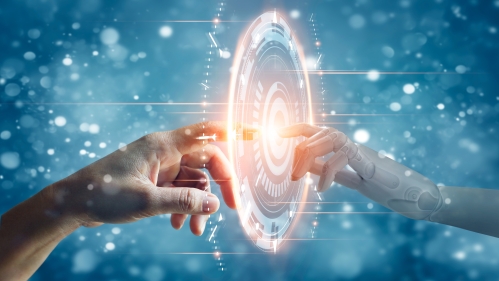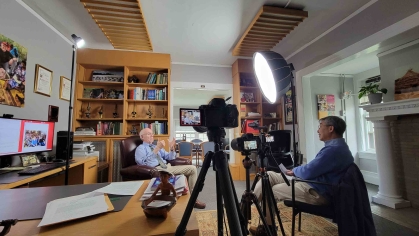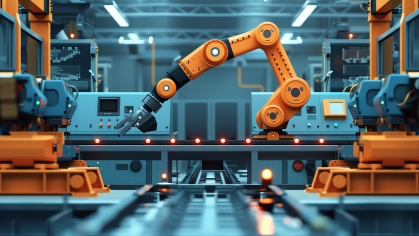New Labs Set the Stage for Discovery

For researchers, cutting-edge facilities are a must. The Department of Industrial and Systems Engineering (ISE) has recognized this by establishing two new state-of-the-art labs: the Energy Lab and the Human-AI Systems Lab are designed to promote discovery in renewable energy and collective intelligence.
Human-AI Systems Lab
As professor and ISE chair Mohsen Jafari points out, industrial revolutions spurred human and machine collaborations, while leaving decision-making and specialized tasks in human hands. For over two decades, the internet and renewable energy industrial revolution has been characterized by the abundance of IoT, wide-scale automation, and machine-to-machine communication, and has planted the seeds for the next industrial revolution.
“It’s widely believed that AI – which is already good at many human jobs – will fuel the next industrial revolution, which is poised to fundamentally change how complex manufacturing, transportation, and other systems will operate,” says Jafari. “Its greatest impact will be complementing and augmenting human capabilities, rather than replacing them. It is collective intelligence that many companies are seeking today.”
According to Jafari, the new Human-AI Systems Lab includes robots, eye trackers, augmented reality, autonomous devices, smart data collection and control devices, and more, providing students with hands-on experience in configuring smart systems and optimizing decision-making through collective intelligence.
“Having the technology on campus gives that many more people the opportunity to use it,” says ISE assistant teaching professor and undergraduate director Elin Wicks. “Undergraduate students will be able to dabble with the newest technology and seniors and graduate students will be able to experiment with it. The technology will be introduced to sophomores so that they might use it in undergraduate projects such as Senior Design.”
The big benefit, for students, according to assistant professor and faculty advisor Grace Guo is the “seamless integration of textbook knowledge and theory and the ability to see how theory is applied to new technologies,” she explains. “This will prepare students well for future careers.”
“For researchers,” she adds, “the lab provides testbeds for Human-AI systems that integrate research and educational activities in collective intelligence, smart systems, and optimized decision-making.”
Energy Lab
Assistant professor Zhimin Xi is using the Energy Lab’s lithium ion battery lab for ongoing study of battery performance reliability and its integration with renewable energy to serve as energy storage systems in electric vehicles.
Fellow assistant professor Aziz Ezzat uses the lab to conduct research on renewable energy analytics. “As part of the Energy Lab, our Renewables and Industrial Analytics (RIA) research group continuously collects weather and generation data for forecasting and optimization models to enhance the predictability, productivity, and reliability of wind and solar energy assets,” he explains.
To do this, Ezzat’s group operates an off-grid solar array system with high-resolution generation and asset health sensors, a visual/thermal drone for AI-based autonomous inspection of solar energy assets, a research-grade meteorological monitoring station, as well as an all-sky imager that collects high-resolution sky images for real-time cloud detection and solar forecasting.
The Energy Lab also features an energy simulation platform of buildings, solar and wind farms. The platform collects and analyzes energy usage data from some of Rutgers campuses’ 1000+ buildings.
“The lab also supports undergraduate senior design and graduate courses in energy systems and risk analysis,” reports Xi.
Both graduate and undergraduate students are directly involved with Ezzat’s research and data collection activities. “In addition, the data collected is directly integrated into undergraduate ISE courses as in-class data challenges, to help teach how data science and analytics can be used to solve critical energy-related problems,” he says.
As Ezzat sees it, “the large-scale integration of renewable energy sources into present-day electricity systems hinges on innovative solutions that mitigate such barriers as the predictability of renewable energy and the reliability of renewable energy assets. This is, in fact, one of the main research thrusts of the Energy Lab.”


